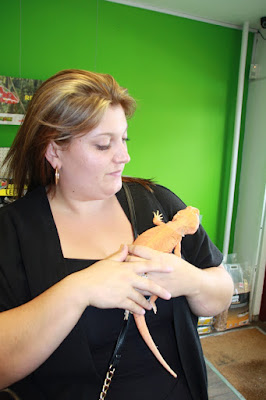'It was very underweight," says Pete Milligan the owner Evolution Reptiles. "The spine was protuding and if you touched it it felt sharp. Each rib could be clearly felt. It was also lifeless when picked up."
He advised the owners to take it to a vet, sold a UV light to them, and discussed the lizard's welfare. Buying a lizard online (like buying a cat or a dog) is always dicey. They may come cheaper but the remedial vets bills will probably end up making these pets more expensive.
Other signs that the lizard was ill - its tail was flat not rounded: it had swollen joins on its feet: its elbows looked as if there were two elbows. Because it hadn't died quickly from lack of heat and UV light, its owner probably thought that it was OK to keep it that way. But the poor animal had survived in pain all that time.
"This all completely avoidable," says Pete. "People are still mistakenly thinking that reptiles don't need UV light. There are vivariums still being sold in which you cannot install UV lighting. And these are often sold with printed labels that give the wrong advice. It's time manufacturers got up to speed."
 |
| A healthy beardie with bright colours thanks to UV light |
Do my survey here:







